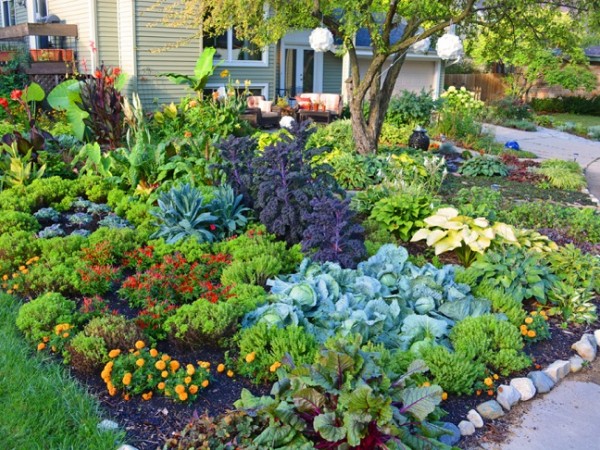25
Aug

Have you noticed that not a day goes by without most of it revolving around food? From the minute we wake up we think of what we’ll have for breakfast, the kind of coffee we’ll choose, then while working we start thinking of lunch and dinner and what snack to have in between. You might eat out every now and then, but unless you have a lot of money at hand that you want to just toss out, you have to do your own cooking. Since most of us live in big cities that make it impossible to pay trips to the supermarkets every day, you can easily get tired of all the grocery shopping and preparing a huge list of ingredients you need for a specific meal.
Though they say you have to have your daily dose of vitamins through eating fruits and vegetables, you don’t really know if the ones sold in supermarkets are actually as healthy as they ought to be. All that talk about GMO has certainly made “organic products” a great deal more expensive. The thought of having fresh produce is appealing, more so if you do the planting and maintaining of the plants and herbs yourself because you’ll know what you eat is of quality. These can be reasons enough to start your own garden no matter whether you live in a house or an apartment and you can have edible gardens Melbourne round to inspire you and supply you with the necessary seeds, grown plants and all the tools you will require to tend to the needs of your garden.
Nowadays you can make your garden even if you don’t have enough space. It’s always better to start from scratch but when you start from seeds, you have to remember you must to provide the proper warm conditions for good results. Unless it’s already warm enough (neither too cold nor too hot) outside, your best bet will be to begin with your own small garden in your kitchen. You can find heirloom seeds that edible gardens Melbourne gardeners provide, including having the possibility of purchasing crates to get you started. Some are even already planted. At the early stage of sprouting, when plants begin to appear from the seeds, they require warmth so they can get to the growing stage. You can use heating mats around the container to keep them warm and help the process.
When it comes to the container, you can use just about anything, from unused pots to cans, but remember to sterilise them very thoroughly, wash them with soap and rinse them with a solution of water and bleach. Create a drainage system by making holes at the bottom of the container and place it on a tray. If you prefer to keep things more organised, make a seed chart so you’ll follow the growing process. The soil you plant them in also makes a difference in ensuring the life of your seeds. For best results, plant them in a well-moisturised and light mix, neither unsterilised nor too wet or you’ll face diseases earlier on. As you probably know, plants need a great deal of light, thus placing them on a sunny window would be the perfect spot. If you don’t have the proper space and let’s say you plant them in your basement or attic, it’s good to use fluorescent lights preferably with a timer so you will have the light chore taken care of.
Water is another essential component of your garden. To prevent diseases, it’s best to do the watering from the bottom while they are in their sprouting stage. You can have the watering chore off your shoulders with the use of self-watering planters, which have a reservoir that keeps the moisture levels in check. Love and care are also part of the deal, so give your garden the attention it deserves and you’ll see it grow and flourish in no time.